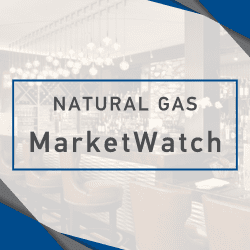Recap: The crude market on Monday traded sideways as the market weighed the latest EU sanctions on Russia’s oil industry against the U.S. tariff policies. While the EU approved further sanctions against Russia, the market does not see much of an impact on supply as it is still expected to make it to the market one way or another. The sanctions could be difficult to monitor and enforce, especially with the U.S. deciding not to support the sanctions. Meanwhile, the United States’ 30% tariffs on EU imports are expected to start on August 1st. Also, adding some pressure was news that Iran is due to hold nuclear talks with Britain, France and Germany in Istanbul on Friday. The oil market posted a high of $67.76 before it sold off to a low of $66.46 by mid-morning. The market later settled in a sideways trading range during the remainder of the session. The August WTI contract settled down 14 cents at $67.20 and the September Brent contract settled down 7 cents at $69.21. The product markets ended the session mixed, with the heating oil market settling up 5.62 cents at $2.5092 and the RB market settling down 2.15 cents at $2.1319.
Technical Analysis: The oil market will continue to trend sideways unless there is a major announcement regarding sanctions imposed on Russia, the U.S. tariff policies, Iranian nuclear talks and continuing tensions in the Middle East. Ahead of the August contract’s expiration at the close on Tuesday, the crude market is seen finding support at $66.46, $66.29, $65.40, $65.23 followed by $64.67, $64.50 and $64.00. Meanwhile, resistance is seen at $67.76, $68.96, $69.65, $70.02, $71.72 and $73.42.
Fundamental News: The Israeli military attacked Houthi targets in Yemen’s Hodeidah port on Monday in its latest assault on the Iran-backed militants, who have been striking ships bound for Israel and launching missiles against it. Israeli Defense Minister Israel Katz said the army was “forcefully countering any attempt to restore the terror infrastructure previously attacked”. In a statement, the Israeli military said the port it attacked had been used “among other things, to transfer weapons from the Iranian regime, which are then used by the Houthi to execute terrorist attacks against the State of Israel and its allies.” The Houthi-run Al Masirah TV said on Monday that a series of attacks on the port was under way, without providing any details.
Data from the Joint Organizations Data Initiative showed that Saudi Arabia’s crude oil exports in May increased to their highest level in three months. Crude exports from the world’s largest oil exporter increased to 6.191 million bpd from 6.166 million bpd in April. Saudi’s crude output for May was at 9.184 million bpd, up from 9.005 million bpd in April. Saudi refineries’ crude throughput was at 2.721 million bpd, up 17,000 bpd from April’s 2.704 million bpd, while direct crude burning increased by 112,000 bpd to 489,000 bpd.
Ecuador’s OCP pipeline will restart operations on July 23rd and the country’s SOTE pipeline will restart operations on July 26th.
IIR Energy said U.S. oil refiners are expected to shut in about 171,000 bpd of capacity in the week ending July 25th, increasing available refining capacity by 74,000 bpd. Offline capacity is expected to remain at the same level in the week ending August 1st.
The Conference Board reported that the U.S. Leading Economic Indicators Index fell by 0.3% in June to 98.8. Analysts had forecast a decline of 0.2%.
Early Market Call – as of 9:00 AM EDT
WTI – Aug $66.55, down 52 cents
RBOB – Aug $2.1044, down 2.10 cents
HO – Aug $2.4430, down 4.96 cents










